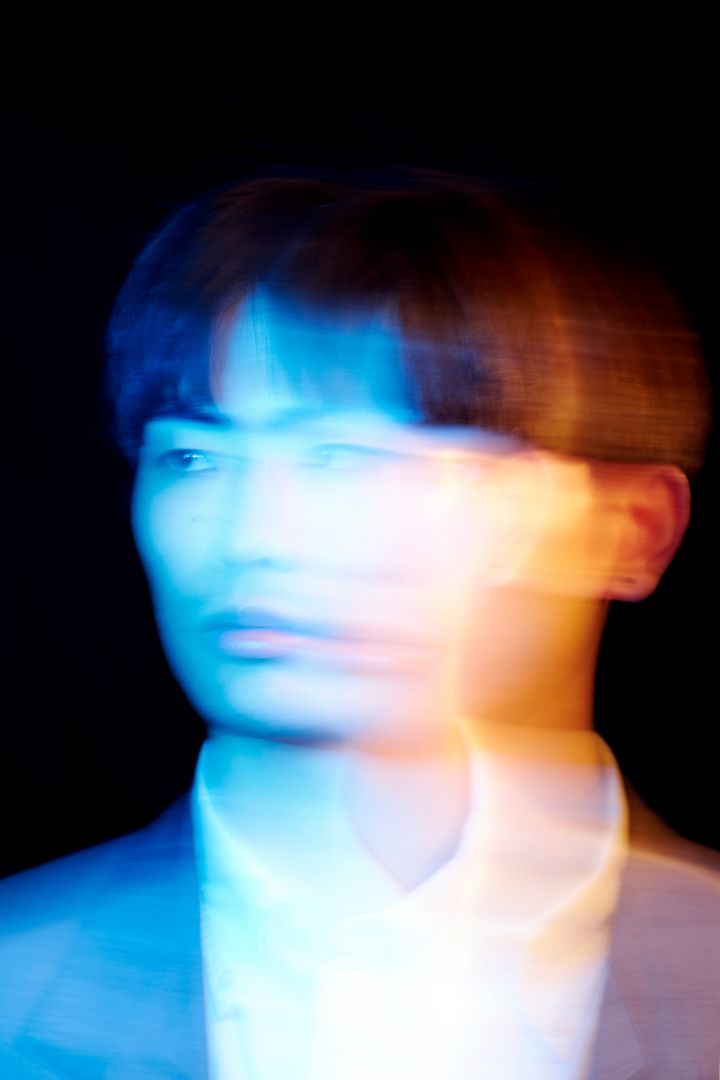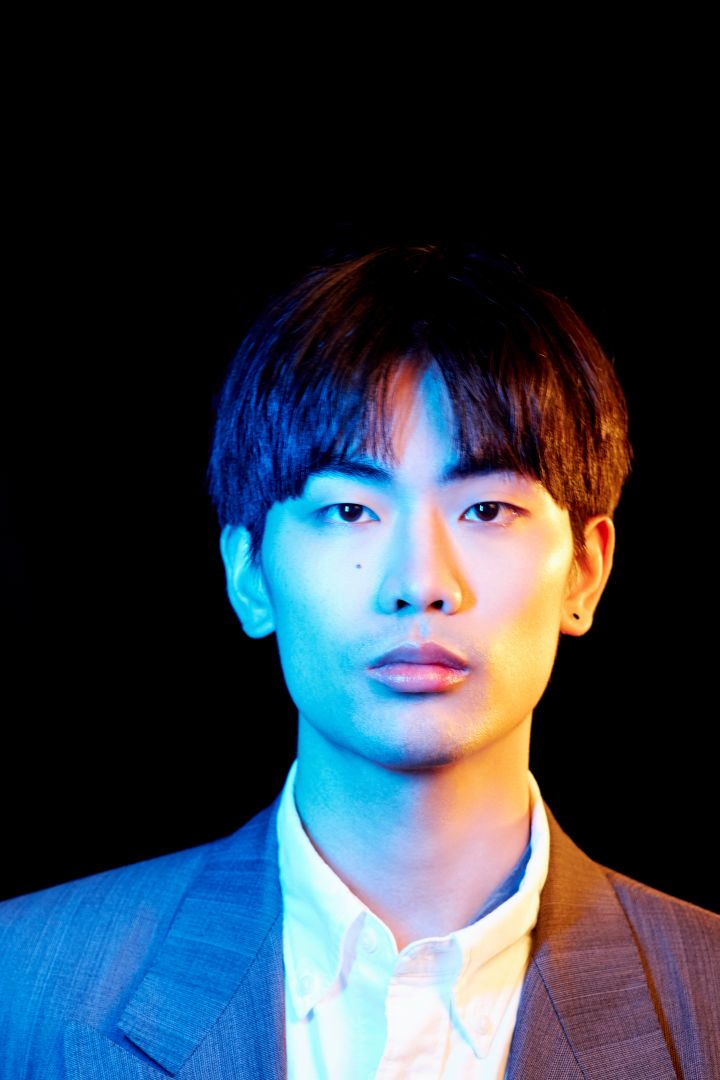Meet Jude Shih | Multimedia Composer, Sound designer


We had the good fortune of connecting with Jude Shih and we’ve shared our conversation below.
Hi Jude, how do you think about risk?
In retrospect, it is a path full of risky decisions and leaps of faith for me. While everything sums up my current career as a composer, in the past 15 years, I have been through several decisive moments that have drastically altered my career path, gradually shaping me into who I am. Spending my entire childhood and teenage years in Taiwan, I fell in love with astrophysics after reading “A Brief History of Time” by Stephen Hawking. Despite the tremendous pressure of the Taiwanese high school entrance exam, I spent countless nights trying to comprehend all those profound concepts, simultaneously studying English, hoping that I could apply for high school in the United States. However, I was just a kid without actual control after all. Eventually, I couldn’t fulfill that goal for family and reality concerns.
I was in despair and got lost in diplomaism. I got into a good university in Taiwan, studying information management. Although it was practical, I couldn’t feel anything but soaking in depression all the time. I dived into existentialism and progressive rock, feeling this urge to express myself, desiring to be understood. Without any formal or classical training, I started to compose; and formed a progressive rock band writing music like Pink Floyd and King Crimson, two of my earliest and greatest inspiration.
In my sophomore year, I got a chance to playwright and score for a dystopian musical theater. This was the first time I felt I had a purpose after middle school. I dropped out of school and focused solely on this play. Looking back now, this is probably the greatest leap of faith I have ever made. Without any practical experience in playwriting and scoring, I sincerely appreciate those who saw something in me and provided their unconditional trust.
The subsequent risk I took was the decision to apply for an NYU Screen Scoring master’s degree. After the play, I did go back to school. However, I merely maintained a minimum grade to graduate while I put all my efforts into composing and scoring. Once a director I worked with suggested I pursue my studies in one of the screen scoring programs in the States. I was terrified by the possibilities. Should I give up a steady career and income I could’ve gotten by finishing my undergraduate degree? Screen Scoring, or music in a broader sense, is full of uncertainties and risks even in the States, left alone in Taiwan.
Furthermore, I couldn’t help to question myself, how could I, who started studying music at 18, possibly compete with all the extraordinary composers who have spent their entire life in music? Eventually, I realized panicking did not lead me anywhere. I started to study intensively with a classical composer who threw my compositions out the window numerous times. It was a frustrating year, I felt worthless and constantly self-doubting, but in retrospect, it provided me the tool to expand my sound palette significantly and allowed me to develop my unique sound with sophisticated techniques.
We have all heard of the cliche, “every risk represents an opportunity.” However, I believe most important is whether I have struggled to be better and insisted on pursuing with efforts despite it being an unpromising future. It is easy to imagine what I would be without the winding path. However, all my time and effort in different areas, even my undergrad major, were not in vain. They forged my world perspective and allowed me to perceive and create music with a different mindset. Every risk I have taken is valuable.

Can you open up a bit about your work and career? We’re big fans and we’d love for our community to learn more about your work.
Since I first started composing as a band leader in college, I realized that I enjoy refreshing elements and twists in music. My favorite parts of writing music are exploring unexpected harmony progressions and creating unusual sound textures that cannot be defined as instruments or objects. I am heavily inspired by Jóhann Jóhannsson’s concert pieces and astonished by how he created all those undefinable sounds in his score for Arrival (2016). I admire his outside-the-box approaches and feel so much related to what he was doing. I have spent years deep diving into sound synthesis and classical compositional techniques. My objective is to blur the boundaries between music, sound, and emotion, creating an immersive atmosphere that provokes emotional responses directly to our cognition. In my composition, I prefer the instrument, which I consider as the medium of conveying emotion, to be absent, or forgotten. Instead of “I heard a sad violin playing,” I much prefer “I heard sadness” as a comment. In this case, the audience perceives emotion rather than the “music.” This approach is effective in film scores, for the soundtracks can merge flawlessly into the world where the film takes place. Consequently, the visual and auditory aspects of the film become inseparable.
Working primarily as a film composer, being capable of different styles when asked for is crucial. Therefore other than developing my sound, I spent tremendous time learning different music styles and techniques to expand my palette, including the Hollywood style composition, just like the soundtracks we heard from blockbuster movies. However, regardless of my writing style, my sound always finds its way to sneak into my composition.
I once struggled to lean towards the Hollywood style to acquire more potential projects, but I am glad I chose to keep the sound that defines me. I get to collaborate with fantastic film directors who share similar perspectives with me and appreciate the scores I compose. For me, that is the most fulfilling part of scoring for films.

Let’s say your best friend was visiting the area and you wanted to show them the best time ever. Where would you take them? Give us a little itinerary – say it was a week long trip, where would you eat, drink, visit, hang out, etc.
I am a relatively in-door person. Despite living in the most lively city in the world, I don’t find myself exploring the city that much. However, I do have several favorite spots here in NYC. Hoboken in New Jersey is a great place to enjoy the skyline of Manhattan from across the bay. Walking there is relaxing, and you can get an open view of the sky and the city, which you don’t often get in Manhattan. There are parks, bars, and restaurants with good vibes for you to sit there and enjoy food or have a drink. Some buildings have rooftop access, allowing you to spend an evening chilling up there and enjoying the view. I also recommend a restaurant called 886, located at St. Mark St in downtown Manhattan. They serve authentic Taiwanese cuisine with cool, trendy decor.
In addition, there are so many lovely music venues and museums as well. Whatever you are into, you can find it here. I am sure that I only scratched the surface of New York City. If there are any discoveries or recommendations, please let me know!
The Shoutout series is all about recognizing that our success and where we are in life is at least somewhat thanks to the efforts, support, mentorship, love and encouragement of others. So is there someone that you want to dedicate your shoutout to?
I would like to thank my parents for not giving up on me when I was so lost during my high school and college years and for their infinite tolerance and patience when I insisted on dropping out of college to work on musical theater. I sincerely appreciate their support in my pursuit of music. Even though they didn’t understand this field, they trusted me when I told them I would do this instead of my original college degree.
To my teachers, James Lawrence, John Kaefer, Chien-Wen Cheng, and my previous band members, I have learned countless knowledge from you. Without your guidance, I wouldn’t be able to be where I am. Thank you all for the advice and encouragement. Those helped me develop the sound and techniques that define me as a composer.
There are numerous artists and musicians who made substantial impacts on my perspective and style. Robert Fripp, Brian Eno, Jóhann Jóhannsson, John Adams, Edward Hopper, Andrei Tarkovsky, there are too many to be listed. Each of them demonstrates possibilities in creativity beyond my imagination. I can never stop discovering new things from them.
Last but not least, I would like to thank Tae for always being on my side and accompanying me regardless of obstacles. Things would have been much different without you being here with me. I appreciate your understanding and kindness.
Website: https://www.judeshihmusic.com/
Instagram: @jude.composer
Other: judedshih0603@gmail.com
Image Credits
Lu Hong
